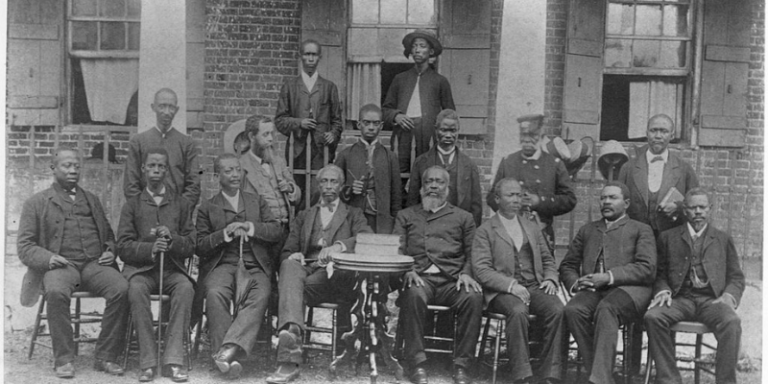Trump And Congress Say Welcome Liberians Home
The NDAA gives Liberian refugees a path to citizenship in the U.S.
By: Sarah Cowgill | December 28, 2019 | 299 Words

The members of the Liberian senate of 1893, mostly made up of freed African American slaves, posing together for a group portrait. (Photo by Library of Congress/Corbis/VCG via Getty Images)
Slipped neatly inside the $738 billion National Defense Authorization Act (NDAA) is a pathway to citizenship for thousands of Liberian immigrants living in the United States without permanent legal status. Liberia is a country in Western Africa with an interesting history that is connected to the U.S.A.
The entire NDAA was endorsed by President Trump, as he claimed it included each of his “priorities.” He had tweeted that he would sign it as soon as it passed, and he did.
Bipartisan Support
The law allows Liberians already in the U.S. to apply for permanent residency if they have lived in the U.S. continuously since 2014. They will be eligible for green cards if they have not left the U.S. for more than 180 days. Those who have committed a crime will be excluded. Many of those Liberian immigrants came as refugees after an Ebola outbreak. They enjoyed Temporary Protected Status (TPS) granted by the Obama administration. Others arrived after unrest in the country.
Two U.S. senators, Tina Smith (D-MN) and Jack Reed (D-RI), were the first to publicly press for the immigration relief provision in the NDAA and the reason is clear for Smith: her state, Minnesota has the largest population of Liberian immigrants of any state. A third senator, Foreign Relations Committee Chairman Jim Risch (R-ID), also supports the measure.
The Founding of Liberia
The Republic of Liberia began as a settlement of the American Colonization Society (ACS), which thought sending African Americans back to Africa would allow for their prosperity and freedom. The Republic officially declared independence on July 26, 1847. Between January 7, 1822, and the American Civil War, more than 15,000 freed slaves and free-born black people traveled to Africa and settled in Liberia. The country’s constitution and government were modeled after the American examples.
















